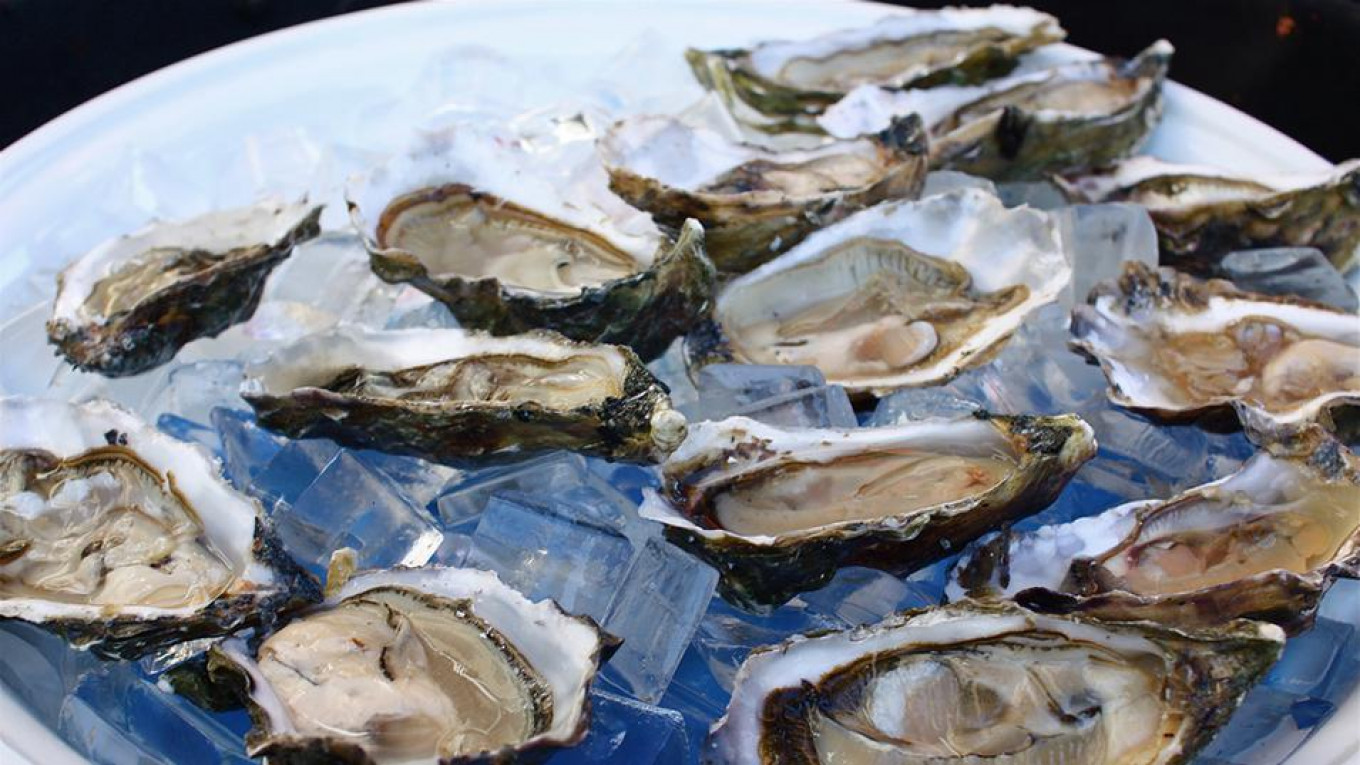Domestic seafood production has seen an unprecedented boom in the last few years, with a boost in the oyster and mussel harvest coming from the annexed Crimean peninsula.
The Kremlin imposed an embargo on Western food imports, including oysters, in response to U.S. sanctions on Russia in the wake of its seizure of Crimea in 2014. Until 2014, Russia did not commercially produce oysters and mussels. The production of cheese, fish and other products has adjusted to the import ban with varying degrees of success.
The Russian oyster harvest increased by 265 times in the past three years, the RBC business portal cited the Federal Agency for Fishery saying Wednesday. Around 2 metric tons of oysters were domestically made in 2014; the number shot up to 531 metric tons by 2017.
Mussels farmers also ramped up their harvest from 100 to 1,165 metric tons in three years, a nearly 12-fold increase, RBC said.
The annexed Crimean peninsula was the top oyster and mussel farming region, followed by the Pacific region of Primorye, the Black Sea region of Krasnodar and the northwestern Republic of Karelia, according to the Federal Agency for Fishery.
The agency credited new legislation that expanded the distribution of fish farming sites, in addition to the Kremlin’s import ban on Western-raised seafood, with the three-year surge in harvesting the seafood delicacy.
A Message from The Moscow Times:
Dear readers,
We are facing unprecedented challenges. Russia's Prosecutor General's Office has designated The Moscow Times as an "undesirable" organization, criminalizing our work and putting our staff at risk of prosecution. This follows our earlier unjust labeling as a "foreign agent."
These actions are direct attempts to silence independent journalism in Russia. The authorities claim our work "discredits the decisions of the Russian leadership." We see things differently: we strive to provide accurate, unbiased reporting on Russia.
We, the journalists of The Moscow Times, refuse to be silenced. But to continue our work, we need your help.
Your support, no matter how small, makes a world of difference. If you can, please support us monthly starting from just $2. It's quick to set up, and every contribution makes a significant impact.
By supporting The Moscow Times, you're defending open, independent journalism in the face of repression. Thank you for standing with us.
Remind me later.






